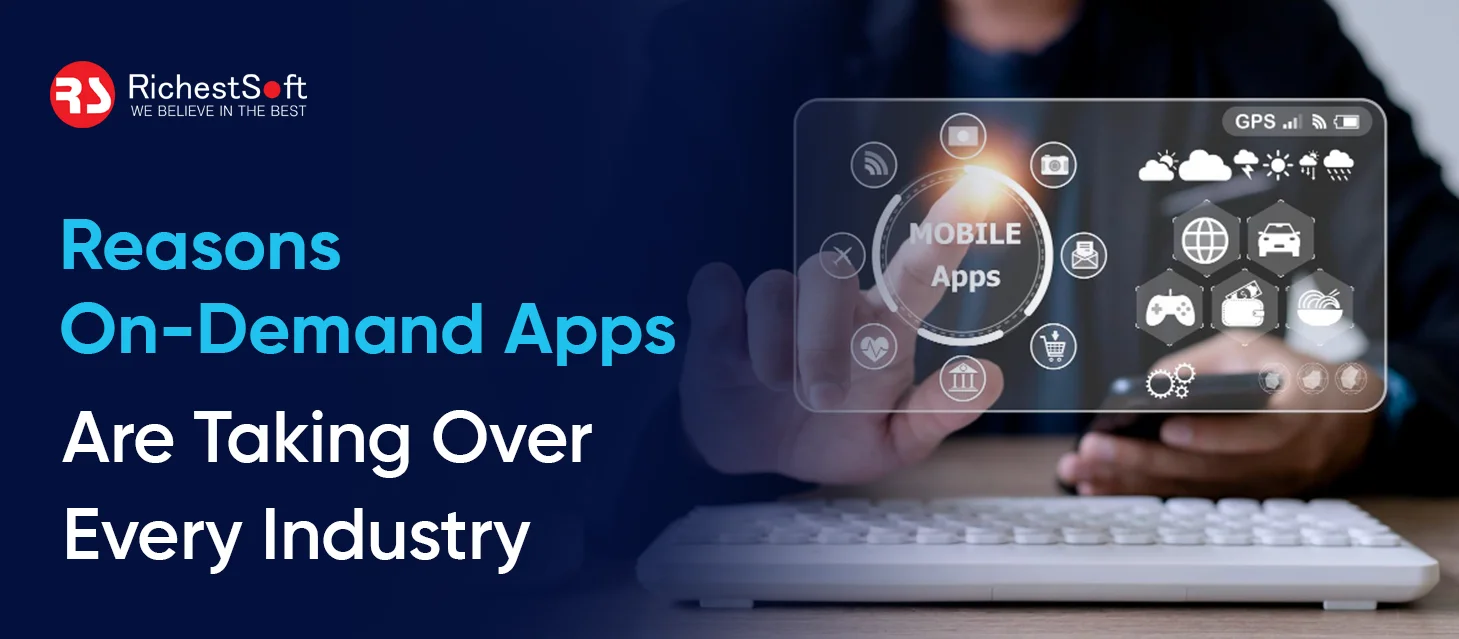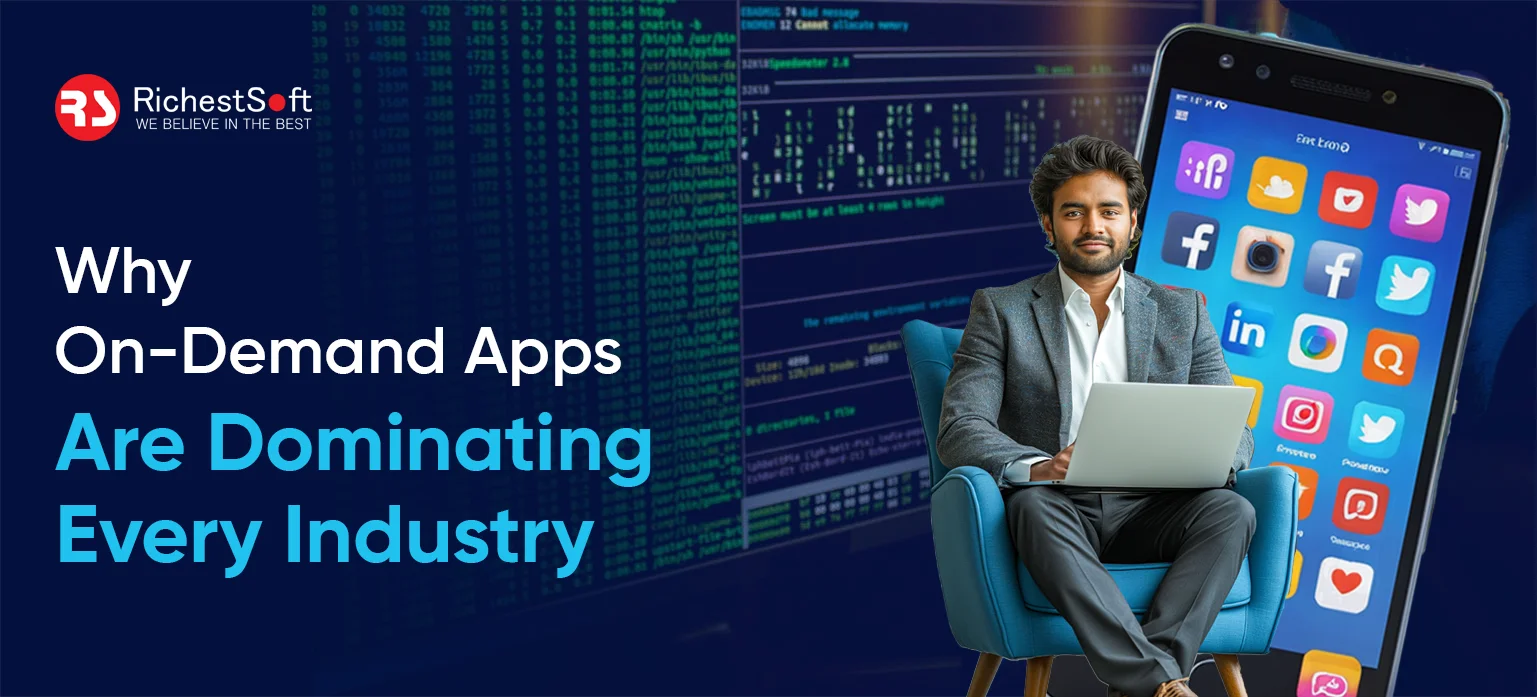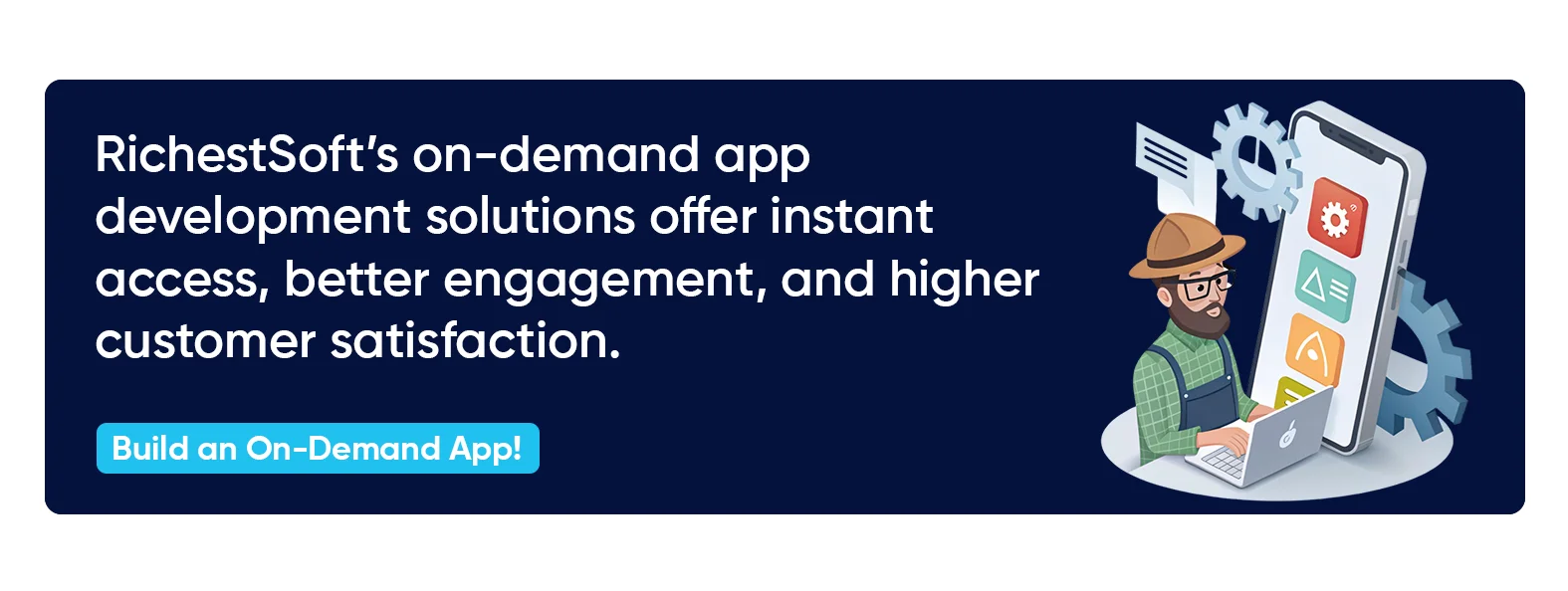Who has time to wait for hours for their meal or a taxi? No one actually! In this speedy world, customers look for reliable and fast services to avoid long hours of waiting. Here comes the need for on-demand apps, which make convenience and comfort possible by providing quick services such as food, rides, and medical advice, so that users don’t have to compromise on anything. This also offers businesses across different industries, like food and ride, a chance to shine. They can invest in on-demand app development solutions to fulfill the needs of their potential audience.
These apps aren’t just convenient. They’re changing how businesses operate, how they reach people, and how they grow. That’s not all!
Here are seven reasons on-demand apps are becoming a must-have in every industry.
Reasons On-Demand Apps Are Taking Over Every Industry

Instant Access for Customers
People these days want things fast. A meal, a ride, even advice from a doctor—if it can’t happen quickly, they lose interest. On-demand apps make that possible, putting services right where you can grab them.
Think about food delivery apps. Customers pick a restaurant, place their order, and it just shows up at their door. No waiting forever. Ride-hailing apps get a driver nearby almost instantly. Even healthcare apps let patients talk to a doctor from home, skipping that boring waiting room.
And this kind of speed isn’t just convenient. It actually helps businesses. People come back, they stick around, they keep using it. That’s how companies grow over time.
Increased Operational Efficiency
Running a business is tough. There’s always a ton of stuff to handle, and on-demand apps help take some of it off your plate. They deal with all the repetitive things—scheduling, delivery tracking, inventory stuff—so fewer mistakes happen, the team stresses less, and you can focus on the stuff that really matters.
Like delivery or logistics, the app can figure out the fastest routes, save fuel, and get orders out quicker. Or for home services, like cleaning or repairs, the app can match workers to jobs automatically. Nothing sits idle; everything keeps moving. Businesses can handle more customers without hiring extra people, and the quality doesn’t drop.
Data-Driven Insights
Using an on-demand app leaves tiny clues about what people want and how they act. Like what they grab together, how often they open the app, what annoys them, and what they say in reviews—it all adds up. If a business actually pays attention to this stuff, it can make better decisions.
A grocery app might notice that people grab milk and eggs together a lot and then toss a deal at them. And ride-sharing apps, they can kind of tell which areas get busy at certain times and make sure there are enough drivers, or tweak prices a little. It seems small, but just paying attention to this stuff can really help. Companies can move faster, plan better, and avoid mistakes before they even happen.
Expanded Market Reach
So, apps really break the whole location thing. A shop can usually only reach people nearby, but an app? It can reach folks across towns, cities, and even countries. And telemedicine stuff, that actually lets doctors see patients way out in remote areas who wouldn’t get care otherwise. Small online shops can sell to people all over the world without opening another store or spending tons of money. It’s kind of crazy, but this reach brings in new money without huge costs and lets even local businesses play on a much bigger stage.
Personalized Customer Experiences
Personalization matters. Apps can figure out what people like and how they behave. Streaming apps suggest shows people enjoy. Shopping apps recommend products that customers might want. Service apps send reminders or offers that actually match a user’s schedule. When people feel understood, they keep coming back. That kind of loyalty keeps business growing over time.
Cost-Effective Scalability
Growing a business the traditional way can get expensive fast. More staff, more space, more logistics—it all costs a lot. On-demand apps make it easier to handle growth without draining your budget. They let you scale up or down depending on what’s happening at the moment, without paying for stuff you don’t need.
Take delivery apps, for instance. They send drivers where the orders are piling up, keeping everyone occupied and the system running without a hitch. Service-based apps work much the same way — schedules shift depending on how many requests come in. This approach keeps things balanced, so you’re not paying extra staff one day or struggling to find help the next. It’s a smart way for smaller businesses to stay competitive without taking on big financial risks.
Mobile-First Convenience
Let’s be honest — people live on their phones. From shopping to booking a service, almost everything happens through a mobile screen. If your business isn’t easy to use on a phone, you’re missing out on a lot of potential customers. Having a mobile-friendly setup isn’t just about convenience anymore — it’s how modern businesses stay visible and relevant.
Mobile apps give people what desktop or offline services just can’t. Real-time updates, push notifications, one-click orders—it’s all instant. In transportation, healthcare, or retail, people expect this now. If your business can provide it, you stay ahead, keep customers happy, and don’t get left behind while the world moves faster.
Conclusion
On-demand apps are really changing the way businesses work and how they connect with customers. They make things faster, smoother, and more personal. With instant access, better operations, useful insights, global reach, and mobile convenience, the benefits are obvious.
If you are interested in investing in an On-demand app development for your industry, partner with RichestSoft. RichestSoft is an on-demand App Development Company helping businesses stay ahead. With our on-demand solutions, businesses can serve customers quickly, keep operations running efficiently, and reach markets they couldn’t before.
 +1 315 210 4488
+1 315 210 4488 +91 99888 06489
+91 99888 06489








